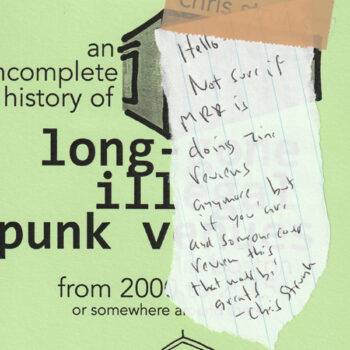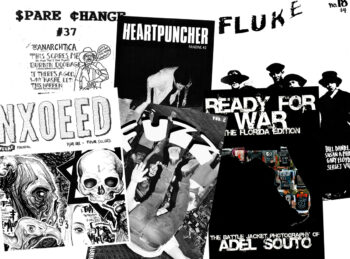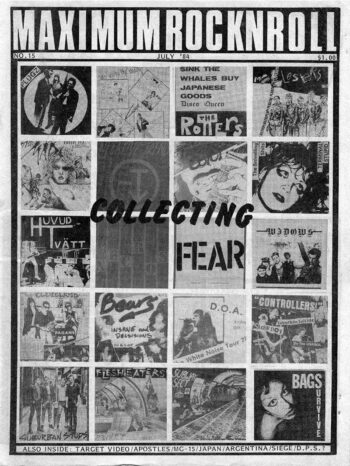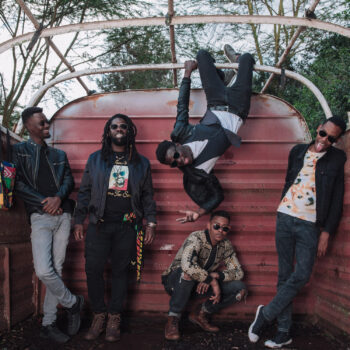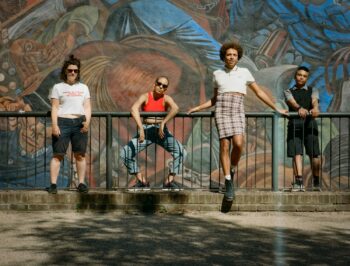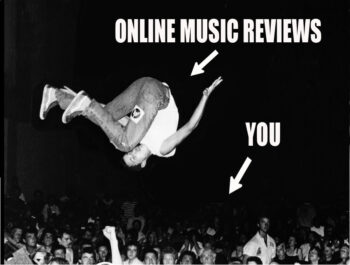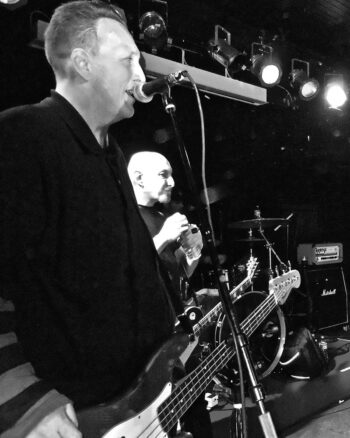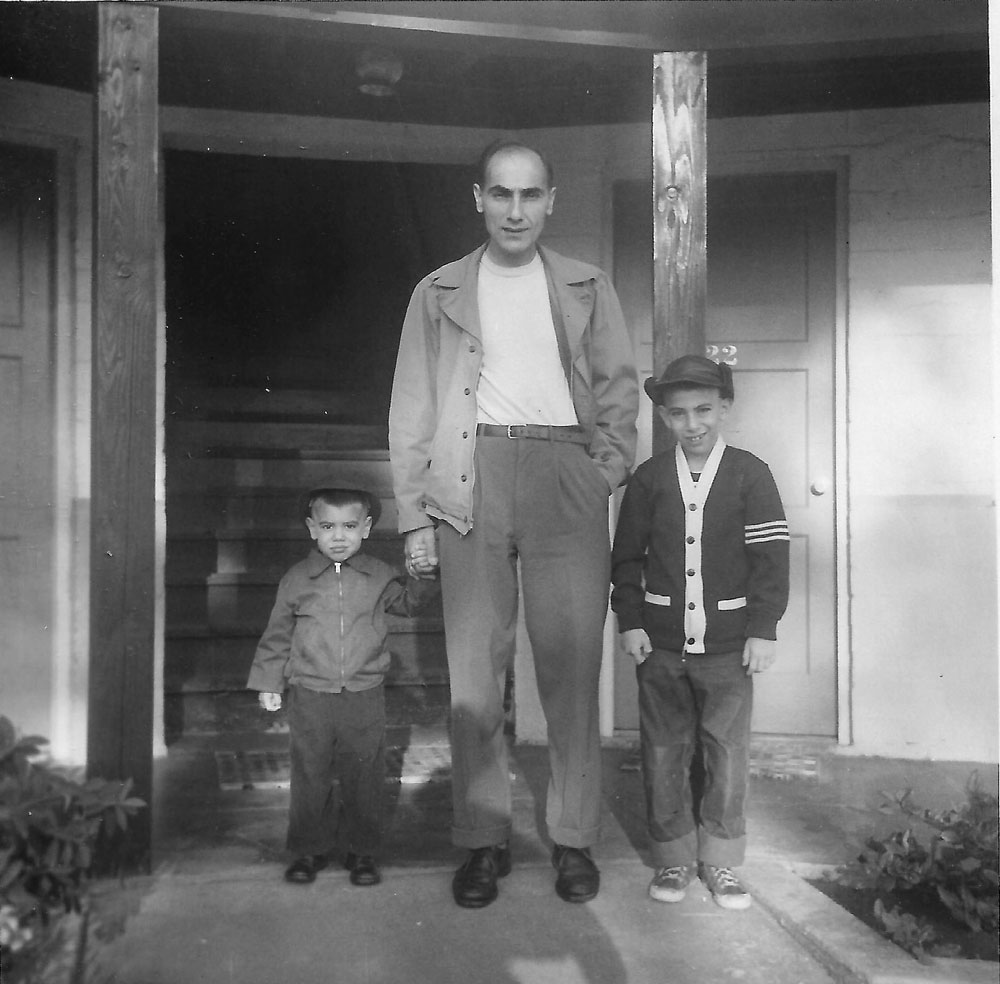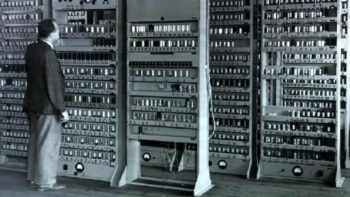Blast From the Past: Red Dons
This originally ran in MRR #301, June 2008 which you can pick up here
Interview by Paco La Vida en Mus
MRR: Red Dons is the continuation of The Observers. Doug wrote most songs for The Observers and now does in Red Dons. Can you explain how The Observers came to an end and how Red Dons got together?
Douglas: All I can decipher about the demise of The Observers is that our friendships simply fell apart and so the band quickly followed. Sadly, I don’t know all the specific events that lead to the end of the band because I was never included in discussions about breaking up the group. A few days after the guys quit, I asked if they would record two final songs that Kashani and I wrote together. They voted not to and that made it difficult for me to find closure with the project.
It put me in a unique and unfortunate situation. Being the main songwriter and lead singer of the group, I was encouraged by a large number of people to find new members and continue on with the band. The Observers were my life, and I was caught off guard by the others leaving, so I seriously considered reforming the group. I just wasn’t ready for the band to end.
Hajji and I started practicing Observers songs with our first drummer, and Justin came along later after we had worked a little with other guitarists like Adam Becker of Autistic Youth and Defect Defect. Ultimately, we changed the name because after practicing together and discussing ideas for future recordings, we realized the group had taken on an identity of its own. Coming to that point was a yearlong process where we endured defamation and were ostracized in the punk scene. It wasn’t a fun time.
What’s interesting is that the Red Dons are a project that in theory predates The Observers. Hajji and I had been discussing and planning this ever since 2000 when we lived together in college housing. Back then, the Red Dons were intended to be a side project that would only release 7″s. Each 7″ would feature different musicians from various backgrounds making each record diverse in sound and style. We even had a power pop 7″ written and ready to go. For example, in 2002, after I moved back to Portland from Germany and Hajji from Jordan, we started working on Escaping Amman. The design of the record, its artwork, and the song “West Bank” are all products of that time period before The Observers even formed.
With that said, however, the Red Dons identity has changed because of The Observers. Now, the Red Dons aren’t a conceptual side project because they do act as a continuation of The Observers. Some of the original ideas we had for the project have remained, though. One of our main objectives is that the band acts as a sort of collective much like Crass did. With people free to come and go as they please, the band can still collaborate with musicians we admire as well as play whatever we’d like to. It is a way to destroy the rules of punk and frees us up to do many different things.

MRR: I know this may be a touchy subject, but I am dead curious about why do you still play Observers songs live and have even re-recorded some on the first Red Dons LP. What was the reaction of the other Observers members? Is that something temporal until you got more songs or do you feel like those songs belong to you?
Douglas: Well, “Walk Alone” is the only song that we recorded on the album that was played live or released by The Observers. There is an interview on the Revisions website with Scene Point Blank where I talk a little about putting this song on the album. For the most part, Death to Idealism was written to be the next Observers album. The Walk Alone EP was intended to act as the album’s preceding single and the song “Walk Alone” was always going to be the opening track of the album. The Observers were supposed to learn and record the album in 2005 when we got back from Europe—but, as we all know, we never got back from Europe. I debated not putting the song on the album for obvious reasons, but in the end I wanted to see this lost project completed the way it was originally intended to be. Take it for what it is.
As for the way the ex-Observers members feel about it, I can’t speak for everyone but Kashani sings back-ups on the Red Dons recording of “Walk Alone” so I’ll assume that he’s cool with us recording and playing it. Kashani has also expressed to me that he was happy we still recorded those last songs he and I wrote together. He has been supportive of Hajji and I and the Red Dons, and even supported us in the idea of keeping The Observers name.
It’s important to note that we aren’t playing Observers songs because of a lack of material. In fact, the number of Red Dons songs that we have is so large that not all members know every song yet. There are many reasons why we play Observers songs live, however. One being that the material is of the same vein, has the same aesthetic, and to me represents one thought or concept that I’m trying to get across. That is why we say the Red Dons are the continuation of The Observers rather than a new band entirely.
Another reason we play those songs is because people request them on a regular basis. Many people never saw The Observers and want to see those songs performed live. I think we’ve been asked before every show if we would play “Symbols, Slogans, Lies,” “Lead Pill,” or “Defeated.” Because of that, we typically include one or two Observers songs in our set. We all know those songs, so why wouldn’t we play them when asked to by the people who paid to see the show? It is surprising to me that some people are sceptical of us for playing those songs when they are not critical of bands like All, Danzig, or even Lou Reed for doing basically the same thing.
Most importantly, I love those songs and the idea of not playing them ever again really depresses me. I still have the same passion for them as I did when I wrote them and I’ll be damned if someone’s gonna try to prevent me from playing a song I wrote. I don’t feel like they belong just to me and I don’t object to other people doing the songs too. Hell, even the Clorox Girls have played “Lead Pill” on tour a couple times when it was requested and I think that’s great.
I guess the last thing to point out is that when The Observers first formed, we played mostly Speds songs for all the same reasons and no one was opposed to that. That’s why it’s hard for me to understand the few who oppose it now. The Observers LP has a Speds song on it. The Red Dons LP has an Observers song on it. The next Revisions LP will probably have a Red Dons song on it. I can’t state it more obviously, but there is a trend there that some people just aren’t catching onto. This whole concept shouldn’t be anything controversial.
MRR: Red Dons name themselves after the Cambridge 4. Do you feel any kind of bond with them? Can you explain to us the reason behind the name?
Hajji: I find the Red Dons very interesting because they are anti-heroes. But even more than that, no matter which way you look at them, they seem like bad guys, especially to the governments involved. Within the context of the times, they were in a no-win situation. They were against fascism, but felt democracy lacked, and had Marxist leanings. No matter what they would do, it was bound to fail. They helped our government win a war, and then still defected. No matter what they did, they are seen as bad guys by all sides. These were very idealistic men who thought the best way to fight fascism was to side with the biggest power, the Soviets. In doing so, though, they betrayed their country and helped inaugurate the cold war. In some ways, we empathize with the Red Dons in that we have had great dreams or ideals to live up to, but in the end have seen these dreams crushed, compromised, or changed as one’s life evolves—hence Death to Idealism, the title of the LP. The reason behind the name has nothing to do with being communist or anti-capitalist; rather it is that we’re not on any side. We are not against anyone, either. We’re not in this for politics but rather to exorcise our demons and deal with real things that effect us.
MRR: Red Dons just finished a full European tour having only a 7″ out. To what extent did the Clorox Girls and Observers tag help? Having toured both the US and Europe extensively during the last few years with different bands, I’m sure you are in a good position to talk about the differences you find between the US and Europe punk scenes.
Douglas: Actually, we did have a LP out in Europe; two, if you count the Revisions LP. Unfortunately, they were delayed getting to us on the road so we didn’t have them for the first two weeks of the tour. If it weren’t for the fact that three of the four of us were already in Europe last summer, we probably wouldn’t have toured overseas as early as we did in order to give the LPs a little more time to circulate. Although the tour went really well, apparently some people didn’t ever realize the LPs were even out.
Hajji: Regarding the other part of the question, one difference I’ve found between the European and US punk scenes is the fact that in Europe they put a description of the band on the flyer and people will come based only on that information. It seems to me people in the US come to shows for the most part because they know the band already, whereas in Europe people will come not only because they know the band but also based on the style of music listed on the flyer.
The Clorox Girls and Observers tag helped a little in that our friends from previous tours came to see us play. A few people were coming for the Clorox Girls link out of curiosity and some were coming outright to hear Observers songs. Some people came just because we were a band on Deranged Records, but for the most part we were pleased to find most had investigated and heard the band online or already had the 7″. In other words, it seemed most people were coming to see the band for what it was and to hear the new material. People requested and sang along to “Incomplete Action,” “Everyday Distraction,” and “West Bank” just as must as anything else we played.

MRR: What types of people go to your shows? I think you have a pretty crossover audience between garage fans and hardcore kids. A few years ago that was hard to imagine, but in the last few years things have changed a lot in that respect. I always thought that The Observers arrived at a time when bands were concerned about pretty much anything but writing songs—and that’s what was so fresh about The Observers.
Douglas: Our audience has the same make-up as The Observers crowd—maybe it’s even a little more diverse now that we are doing the Revisions too. I agree with you that the punk scene was very segregated around the time The Observers started, and the diversity of our crowd was what I always loved about our shows back then. I’m happy to see more bands appreciated by both the hardcore and garage scenes, but I’m concerned that people are once again caring less and less about songwriting and more about scene politics.
The last two years or so have really demystified the punk world for me by the way the scene seems to constantly revert back to scenester drama to evaluate bands and people. Reviews today seem to deal more with who made the music rather than the music itself. I guess it has always been that way, but it seemed like for a moment there, things could have changed. Maybe that is why we try to experiment with our different music projects and try to connect with different audiences. We feel the way that people within the punk community view music needs to be challenged from time to time. Until the hardcore scene cares more about its music than its social/scenester politics, the bands will remain irrelevant, outdated, and banal. A divided scene playing retro music and concerned with this trivial inner-scene drama is doomed to irrelevance. Punk still has relevance to us. That’s why we do what we do.
MRR: You seem to spend a big chunk of the year on the road—how do you manage? I am sure it is hard to have a life, write songs, and not lose your sanity. Is that what makes a difference this days of virtual music?
Hajji: It is hard to spend so much time on the road. One way to manage is to be content with very little. It seems the less you have, the easier it is to travel and be flexible with where you go and what you do. As for having a life, you lose quite a bit at home, but at the same time make so many friends abroad that you start to feel anywhere could be home. Sanity? I think that spending so much time on the road indicates a search for sanity rather than a loss.

MRR: While Red Dons seems to keep a similar musical pattern than The Observers, the lyrics are somewhat different; perhaps more focused, maybe more jaded and political to a point. Do you all discuss them or are they all Doug? Can you talk about the song-writing process?
Douglas: The biggest and most apparent difference between The Observers’ and Red Dons’ lyrics right now is the collaboration between Hajji and me. Although he was always an influence on The Observers whether it was our equipment choices, working in the studio with us, or simply critiquing our songs, practices, and show—now Hajji takes a more active role in the actual songwriting and conceptual elements of the band. This definitely adds the focus and depth that The Observers often lacked back when I was the only one working on the lyrics.
Hajji has had a very interesting life and lately some of our songs have focused on experiences he had while living in the Middle East. On songs like this, we work out the content of the song together, then I’ll write the lyrics and we will revise them until the song is complete. Richie has also been involved in the critiquing process since joining the band.
I guess another reason that the lyrics may seem a little different is that we are also all five years older now and in that time period we have been through some pretty traumatic events in our personal lives. Those events would leave anyone a little more jaded, but more focused too.

MRR: So far you’ve released a four-track EP and a full-length, both on Canadian label Deranged Records. I believe the LP was recorded in an extremely tight schedule in between tours. Do you feel that that sense of urgency and hectic-ness is in the recordings? How much of that stuff predated the Red Dons days? Also, you have a European press of your LP—how do you think it helps a band having many releases in different countries?
Hajji: Yes, I feel that that sense of urgency and hectic-ness is in the recordings. When I listen to the record, there are things I hear that I could improve upon, or ideas that I had for the songs that didn’t hit me until I had played them for a month on the road. But, in some ways, though, I really enjoy that it was recorded that way. It was very challenging to pull off, but the record is a document of that moment in time. There is no revising what happened and how we felt and played. If we had worked on the LP for a month in the studio, I think it would have a different feel.
Asking how much material predates the Red Dons days is a difficult question to answer because of the inception of the project years ago and how it was then drastically altered to accommodate the break-up of The Observers. As it stands now, the LP has a lot of material that predates the band as we know it today, because the songs were originally written for The Observers. However, a lot of the songs underwent a significant reworking to reflect the new membership and our changing views of life. After the break-up, Doug and I spent a long time working on the new music and a lot of the material has grown from that year of practicing, such as “Hajji Takes A Ride” or “Room 322.”
Douglas: It’s unfortunate the album had to be recorded under such time constraints, but I guess we have our first drummer to thank for that. He left the band two weeks prior to recording the album. At the time, we were on tour in New York and he flew home without telling anyone. No one even realized he was gone until the end of the night when we were loading up his drums and he sent us a text message from the airport that said he really respected us and hated to leave, but the tour was causing too much stress on his relationship with his girlfriend.
We called up Richie that night and a few days later I left the tour to join him in Portland. The next week was devoted to teaching him the songs, and when Hajji and Justin got back into town about ten days later, we recorded the album. The take of “Everyday Distraction” was the first time the four of us ever played the song together, and I like that because I feel the tension and nervousness we all had while playing the song. That uneasy energy is all over the record and adds to the already existing themes of the artwork, music, and lyrics. Although the situation wasn’t ideal, Richie did a great job and I think we all feel we got a much better drummer out of it. Normally, I wouldn’t have recorded an album like that, but we needed to record then in order to give the European label enough time to get the LP out in time for our European tour. Basically, we had no other choice but to do it the way we did.
I guess that leads into the next part of your question. It really helps bands to have records pressed in different countries if for no other reason but to keep the price of the records affordable. Shipping costs are outrageously high and often your records don’t even arrive. It also makes it easier to get more records when you sell out of copies on tour. Wasted Sounds in Sweden pressed the Revisions and Red Dons LPs for our European tour this year, which was a big help. It should also be noted that Dirtnap and Deranged were very cool about allowing another label to press the records because they knew it was in our best interest to have it done that way. Often labels are more concerned about their potential record sales than the band’s needs. Both Ken at Dirtnap and Gord at Deranged willingly sacrificed their bottom line to help us, which is a major reason I like working with those labels.
MRR: All The Observers and Red Dons releases follow somewhat of an aesthetic except for your debut EP. What was that about? I know Doug takes care of the artwork side of things. Do you have some training? Have you done artwork for other bands?
Hajji: Doug is of course the artist who renders the ideas into the form that you see them and is responsible for the overall look of the band. I have been involved in some of the conceptual ideas behind the artwork, which is manifested in the Middle Eastern themes. To me, the artwork reflects the way we work together. The 7″ was the first attempt to combine our concepts under Doug’s brush. As you can see, the LP has improved upon that melding of ideas.
Douglas: I have a bachelor’s degree in art from Portland State University. I guess that’s my “training.” I haven’t done artwork for many other bands. I did an insert once for Autistic Youth, but that’s about it. Bands have asked me before to do art for them but I’m usually on the road and my timelines don’t match up with their deadlines. I’m always interested in doing art for other bands though.

MRR: Justin’s other band Clorox Girls is on BYO. Would Red Dons follow the same steps giving the opportunity? How important is for the band to remain independent? Do you have an agenda with Red Dons?
Douglas: We have been given opportunities like that already, but I feel most comfortable with Deranged. I just think it is the label that fits the Red Dons best mostly due to examples like I gave earlier. Say what you will, but Gord always has our best interests in mind and I really appreciate that. We are given 100% artistic freedom, he has never pressed the wrong color vinyl, we buy our extra records off him for cheap, he keeps all the records in press and well distributed, has never been late on a deadline once, and most recently he has supported us in our efforts to remix and re-master the LP. I can’t say that about many other labels that I myself, or people I know, have worked with. That includes everything from major labels to the smallest independents out there.
Although we aren’t trying to get the Red Dons on a larger label, what I find concerning about the discussion regarding majors and large indies is how hypocritical we can be when chastising bands who do sign to those labels. If you’re going to criticize a band for corporate distribution, then make sure that your record collection doesn’t have any major label recordings and take down your band’s MySpace page. If you aren’t willing to do that, and most of us aren’t, then relax and find someone else to pick on. Aren’t there larger issues to confront than how music is distributed?
When the Clorox Girls signed to BYO, I supported Justin in that decision because he is my friend and he has always supported me. If that means to some people that I’m somehow guilty by association, then fine. Friends will always mean way more to me than stupid labels and the opinion of punk rock zines. That’s not an agenda.
MRR: Danni/Hajji has a Middle Eastern background, and some of the Red Dons songs are about the Middle East conflict, all from a personal point of view. I imagine he is responsible for those ones. Can you tell us a bit about your views on the conflict?
Hajji: I went to Jordan September 1st, 2001 to study. As you can surmise, it was a hectic year in the region. The second Intifada, September 11th, war in Afghanistan, the rise of al-Qaida to international prominence, and the overall instability has contributed a lot to the personal views that come out in our music. For the most part though, what is reflected in the music has nothing to do with politics or the conflict but rather my trying to cope with the experiences I had and the situations I had to deal with. A lot of the songs are concerned with specific events that happened to me, or problems I’ve had dealing with the effects they have had on my life.
Being one of the few Americans there at a university with 20,000 students gave me a lot of exposure at the time. For some Jordanians, Palestinians, and Iraqis there, I was the only American they came into contact with for venting or expressing their opinions about the politics of our country. Often times when a person’s family member would be killed or go missing in the West Bank, I would be the first person they would approach or blame for what happened even though I had nothing to do with the unfortunate circumstances. Beyond that, living in the region at the time put me in a lot of situations out of my control such as riots at the university, anti-American or anti-Israeli demonstrations, bomb threats, bombings, assassinations, anti-government demonstrations, conservative Islamic rallies, and general unrest. It’s a strange sensation to walk around a corner into tear gas, police, and fires. I didn’t participate in any of the unrest but rather was caught in a lot of it by being in the wrong place at the wrong time. I suppose you could say that about my entire time there. So, much of the songs deal with specific events. Incorporating these experiences or writing about them has been very cathartic in my life and our records are riddled with clues relating to all the things that happened. Not to put a negative light only on my experiences—a lot of amazing things happened and I learned a lot, especially in terms of removing my head from the Western mind-set. In many ways, the art of the LP is a nod of respect to the Arabs.
As for the conflict in particular, overall it’s a very frustrating thing to deal with. Not only does it prevent free movement within the region but it also encourages hate, bigotry, and partisanism. It has only had a negative impact on my life and on the people involved. If you’re asking me whether I take sides, the answer is no. I think both sides are wrong and perpetuating the conflict. I think there needs to be a fundamental change in the region or people for anything to be resolved.
MRR: Earlier you spoke about your vision of Red Dons as a band where members come and go as they feel. Justin now lives in Europe. How does this affect the immediate future of the band? What are Red Dons’ plans for 2008?
Douglas: It doesn’t affect us dramatically because we knew that was going to be the situation very early on in the band. Justin joined the Red Dons because we needed a guitarist and we always wanted to work together on a project. With that said, though, there were never any delusions about his main focus being on the Clorox Girls or his new band, Suspect Parts. Our friend Andy is playing guitar with us now, but that’s not a permanent situation either. Andy has a band called No Secrets Between Sailors, which is his primary focus.
That is where the whole collective idea comes into play. As I just stated, Justin wanted to work on a project with us but was unable to completely commit because of his other bands. The same goes for Andy. Hajji’s and my idea of opening up the Red Dons to an evolving atmosphere makes it possible to collaborate with other musicians in this same circumstance by giving them a no-strings-attached forum where we can all work together even if it is only for a short time. Everyone is able to put their mark on the band and they are always a part of the group whether or not they are currently playing with us.
For me, artistically, the challenge is to keep the sound of the Red Dons fairly cohesive while highlighting each person’s contribution, but so far it has been a cool experiment that has lead to great experiences. It can also be a little frustrating because it seems like we are constantly looking for a new guitarist, but we have a solid unit with Hajji, Richie, and me, and the unorthodox approach allows cool projects to materialize with musicians we admire.
For example, Peter from Gorilla Angreb and I have been talking about doing a project together at some point. The logistics of us being in a band together are nearly impossible due to him living in Denmark and me in Portland. Also, he is focused on other things like a solo album and going to film school. Despite that, we are both fans of each other’s music and would like to try to work together on a project, so a Red Dons 7″ is the perfect way to actualize that desire to collaborate. We might start working on that project this summer, but there is no real set timetable for when it will happen. Eventually though, it will be recorded and we will tour together on it. Then, that will basically be it, end of project, and we will part ways to go back to working on our other projects. But it’s cool because we will have had the opportunity of working together without jeopardizing those primary projects.
The goal is that everyone helps each other with their respective projects. When the Clorox Girls needed a bassist, Hajji signed up for the job. When we needed guitarists, Justin and Andy have helped out. This year when Peter tours the US, we will be his backup band and he will be our guitarist. Jonny Cat needed a band for his brainchild, The Chemicals, so we became The Chemicals and he has helped us with recordings and making t-shirts. You see, the collective idea is actually bigger than just the Red Dons. It’s kind of like everyone involved with the group and their projects too helping each other in anyway they can.
MRR: Anything you want to add?
Douglas: Well, as far as 2008 goes, we are planning a US summer tour for the Red Dons and Revisions with The Estranged and maybe even Peter too. The Estranged are a cool band from Portland featuring the ex-members of Remains of the Day. Like many of us Portland bands, they are influenced by The Wipers and they have an LP coming out in April on Dirtnap Records. If you can help us book a show in your town, please contact us through our one of our websites.
Other than that I don’t have anything else to add. I feel like we have covered a lot of material. Thanks again though for doing this interview, Paco. I hope it answers any questions people have about us.




